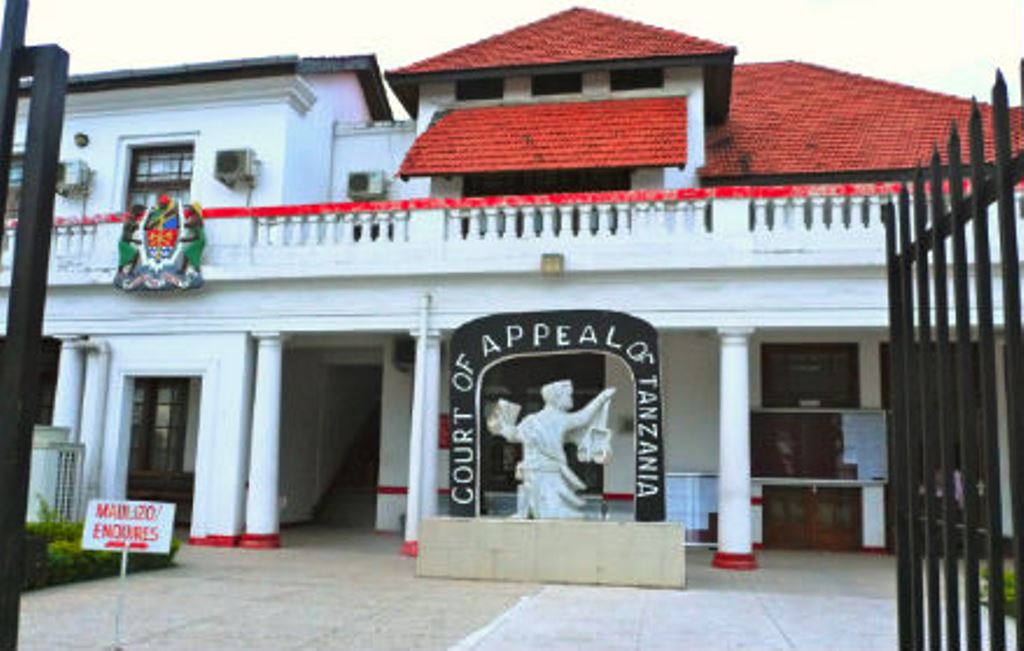AfricaPress-Tanzania: THE Court of Appeal has ordered the immediate release from prison of four suspected poachers, who were sentenced to 20 years’ imprisonment each and to pay 20m/- in total as compensation for being found in possession of five kilogrammes of hippopotamus meat.
Justices Shaban Lila, Rehema Mkuye and Ignas Kitus ruled in favour of Matheo Ngua, Richard Masala, Jofrey Saimoni and Edwin Gerady Mkutwa, the appellants, after determining the appeal they lodged to oppose the judgment given by Chunya District Court and subsequently confirmed by the High Court.
They nullified the proceedings of the trial district court having noted that the economic case under which the appellants were facing was conducted by the district court without having jurisdiction for lacking certificate of the Director of Public Prosecutions (DPP).
Having nullified the proceedings, the justices of the appeals court quashed the judgments of the District Court and that of the High Court on the first appeal and also set aside the sentence imposed on the appellants.
“In exercise of our powers of revision under section 4 (2) of the (Appellate Jurisdiction Act) we order the immediate release of the appellants unless their continued incarceration is for another lawful cause,” they declared.
Under Section 3 of the Economic and Organised Crime Control Act, the justices noted that the jurisdiction to try economic cases is vested in the High Court.
However, they also observed, there is an exception to that rule, which is also statutory.
They pointed out that the DPP may confer jurisdiction to a subordinate court by a consent under Section 26 (1) of the Act and a certificate of transfer issued under Section 12 (3) of the Act and if that is not done, the proceedings before such court become a nullity.
During hearing of the appeal, the prosecution had sided with the appellants in that there was no sufficient evidence to prove the case against them beyond reasonable doubt, having noted a number of defects and cited three instances of inadequacy in the prosecution case to augment his position.
The first instance related to the prosecution introducing some exhibit into evidence to show that the meat was destroyed and its inventory kept in proof of existence of that meat.
He challenged the fact that the appellants were not given the right to take part in the destruction of the meat. The second instance is when the prosecution sought to tender the certificate of seizure, of which the appellants objected to its admissibility.
However, even before the prosecution could respond to the objection, the court overruled it, clearly showing that it was biased in favour of the prosecution.
The third instance is that in the appellants’ defence, that they were found fishing on the lake, which was supported by the evidence of a prosecution witness, who said they were in possession of fishing nets, but the trial court convicted them for being in unlawful possession of government trophy.
It was alleged that the appellants, together with two other people who were initially charged but later discharged, were found in unlawful possession of five kilogrammes of Hippopotamus meat valued at 3,990,000/=, the property of the government of the United Republic of Tanzania.
The evidence that sank the appellant’s boat was that on September 6, 2015 when two game wardens working at Lutwati or Piti Game Reserve area, on patrol, they came across foot marks of human being leading from Lake Rukwa shores to the reserved area.
They traced the marks to a spot where they found a local oven for roasting meat. Around that place there were also remains of a slaughtered animal which they detected to be a hippopotamus.
However, there were no people around. The game wardens saw a boat on the lake with people in it.
They approached the boat by using their own patrol boat, having suspected the people therein to be connected with the slaughtered hippopotamus, the remains of which had been found earlier.
It turned out that there were about seven people in the boat in which about five kilogrammes of meat from a hippopotamus was found.
The suspects were allegedly also in possession of a gun which, however, they cast into the lake to stay clear of more trouble. The culprits were arrested and charged. In defence, all appellants denied the allegations.
They stated that they were found fishing outside the reserved area and that the meat was planted on them by the game wardens.
Having considered the evidence tendered by both parties, the District Court sentenced them each to 20 years imprisonment and to a fine of 5m/- each.
Their appeal against the convictions and sentences was dismissed by the High Court for want of merit. They decided to go to the Court of Appeal.







